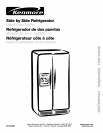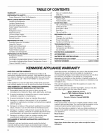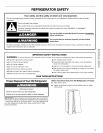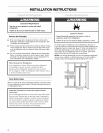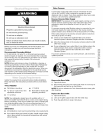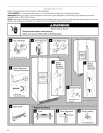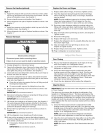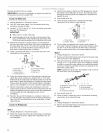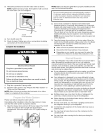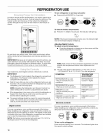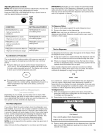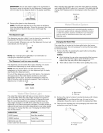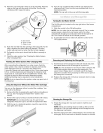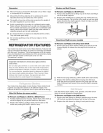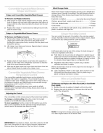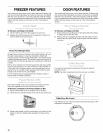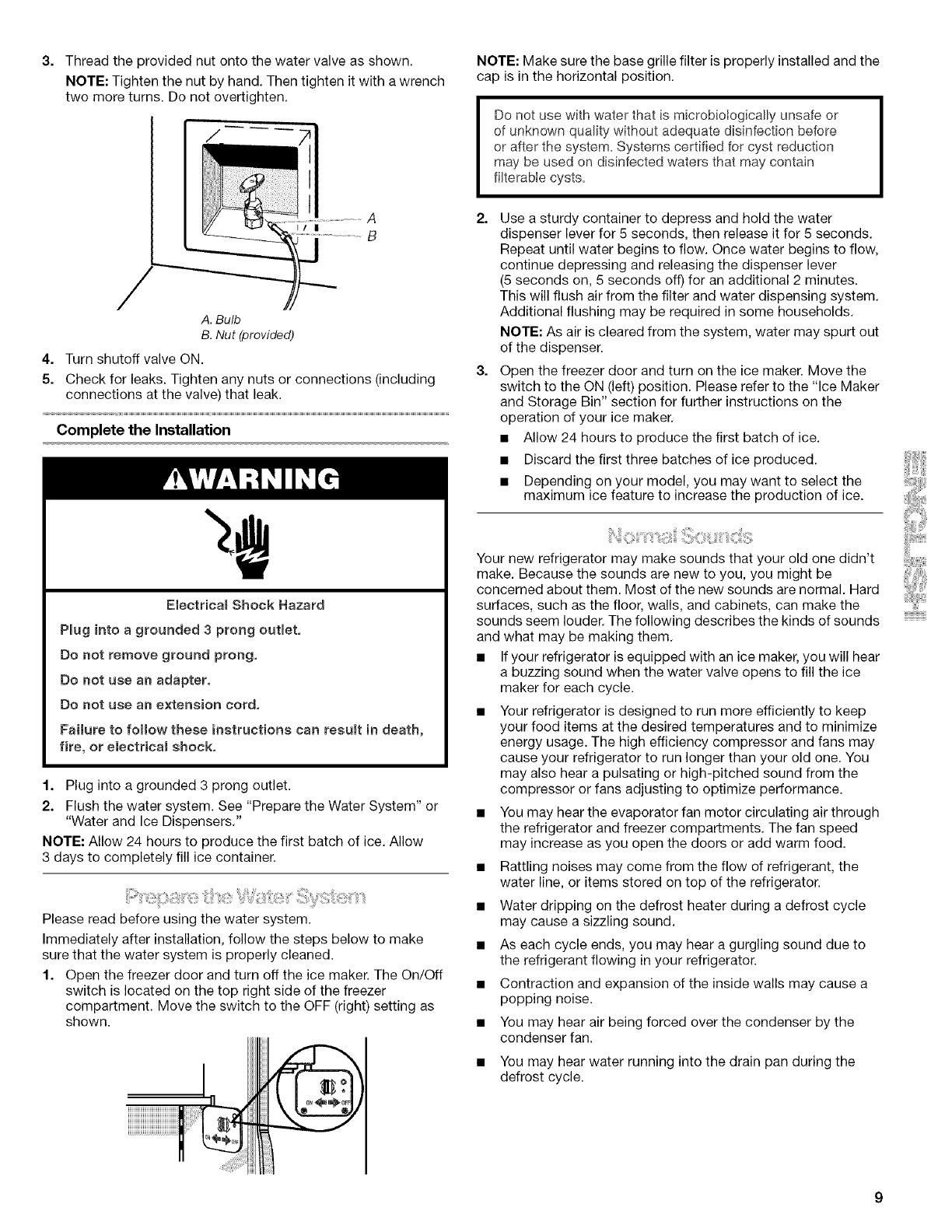
3. Threadtheprovidednutontothewatervalveasshown.
NOTE:Tightenthenutbyhand.Thentightenitwithawrench
twomoreturns.Donotovertighten.
A
B
A. Bulb
B. Nut (provided)
4. Turn shutoff valve ON.
5. Check for leaks. Tighten any nuts or connections (including
connections at the valve) that leak.
Complete the Installation
Electrica_ Shock Hazard
P_ug into a grounded 3 prong out_et,
Do not remove ground prong.
Do not use an adapter.
Do not use an extension cord.
Failure to follow these instructions can result in death,
fire, or eiectrica_ shock,
1. Plug into a grounded 3 prong outlet.
2. Flush the water system. See "Prepare the Water System" or
"Water and Ice Dispensers."
NOTE: Allow 24 hours to produce the first batch of ice. Allow
3 days to completely fill ice container.
Please read before using the water system.
Immediately after installation, follow the steps below to make
sure that the water system is properly cleaned.
1. Open the freezer door and turn off the ice maker. The On/Off
switch is located on the top right side of the freezer
compartment. Move the switch to the OFF (right) setting as
shown.
NOTE: Make sure the base grille filter is properly installed and the
cap is in the horizontal position.
Do not use with water that is microbiologically unsafe or
of unknown quality without adequate disinfection before
or after the system= Systems certified for cyst reduction
may be used on disinfected waters that may contain
filterable cysts=
2=
g=
Use a sturdy container to depress and hold the water
dispenser lever for 5 seconds, then release it for 5 seconds.
Repeat until water begins to flow. Once water begins to flow,
continue depressing and releasing the dispenser lever
(5 seconds on, 5 seconds off) for an additional 2 minutes.
This will flush air from the filter and water dispensing system.
Additional flushing may be required in some households.
NOTE: As air is cleared from the system, water may spurt out
of the dispenser.
Open the freezer door and turn on the ice maker. Move the
switch to the ON (left) position. Please refer to the "Ice Maker
and Storage Bin" section for further instructions on the
operation of your ice maker.
• Allow 24 hours to produce the first batch of ice.
• Discard the first three batches of ice produced.
• Depending on your model, you may want to select the
maximum ice feature to increase the production of ice.
Your new refrigerator may make sounds that your old one didn't
make. Because the sounds are new to you, you might be
concerned about them. Most of the new sounds are normal. Hard
surfaces, such as the floor, walls, and cabinets, can make the
sounds seem louder. The following describes the kinds of sounds
and what may be making them.
• If your refrigerator is equipped with an ice maker, you will hear
a buzzing sound when the water valve opens to fill the ice
maker for each cycle.
Your refrigerator is designed to run more efficiently to keep
your food items at the desired temperatures and to minimize
energy usage. The high efficiency compressor and fans may
cause your refrigerator to run longer than your old one. You
may also hear a pulsating or high-pitched sound from the
compressor or fans adjusting to optimize performance.
• You may hear the evaporator fan motor circulating air through
the refrigerator and freezer compartments. The fan speed
may increase as you open the doors or add warm food.
• Rattling noises may come from the flow of refrigerant, the
water line, or items stored on top of the refrigerator.
• Water dripping on the defrost heater during a defrost cycle
may cause a sizzling sound.
• As each cycle ends, you may hear a gurgling sound due to
the refrigerant flowing in your refrigerator.
• Contraction and expansion of the inside walls may cause a
popping noise.
• You may hear air being forced over the condenser by the
condenser fan.
• You may hear water running into the drain pan during the
defrost cycle.



